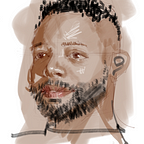DAOS — X Challenge : An Introduction
What is This?
The ability to assemble and form communities and compute many things in parallel can be considered a key characteristic of intelligence. As a species, humanity has arguably been pretty good at this; I would argue had it not been so, I might not have been able to type this blog post and share it instantly around the world. We’ve been able to organize and build complex systems that, for better or worse, have made it possible for us to live in one of the most peaceful times in recent memory. Nature has expressed this intelligence in all sorts of different forms, many of which we can only imagine as they happen at a scale beyond the perception of our tools and senses. Recently, there has been a growing interest in the ability of an organism or organization to self-organize in its environment to enhance its survival and promote its growth, particularly in light of the pressing issues facing humanity as a species that we need to address collectively.
Distributed Autonomous Organizations and Systems (or DAOS) include a set of protocols, guidelines, and other governance rules used by various “dynamic” organizations and systems that can self-assemble and function independently without the need for supervision or control from a centralized entity. DAOS encompass a diverse range of subjects and technologies, such as distributed and edge computing, virtual and augmented reality, renewable energy, mesh networks, cryptography, digital finance, and machine learning and robotics. It’s important to note that DAOS (Distributed Autonomous Organizations and Systems) encompasses a broader category of technology and tools, including Decentralized Autonomous Organizations (DAOs) as a subset. The main difference is that DAOS aren’t just limited to “decentralized organizations” but also encompasses a variety of distributed computer systems, including various technologies and concepts like robotics.
Why this and why now?
Recent events have highlighted several shortcomings in many major organizations and systems, suggesting that re-evaluating the underlying issues may lead to more effective solutions. Creating systems that efficiently utilize the collective intelligence of a group while also being self-governing and maintaining structure and stability is challenging. I am putting forth this challenge to the community through a series of hackathons and contests, which are intended to inspire anyone who is willing to take on the challenge to collaborate towards the common objective of creating a better future for our planet.
Stay Tuned!
